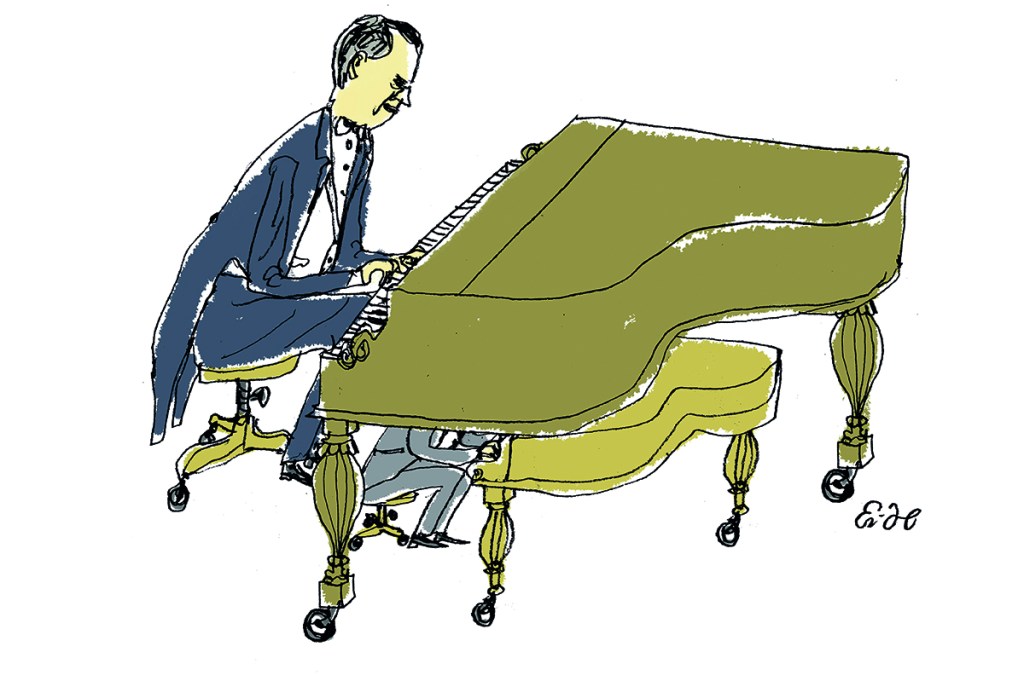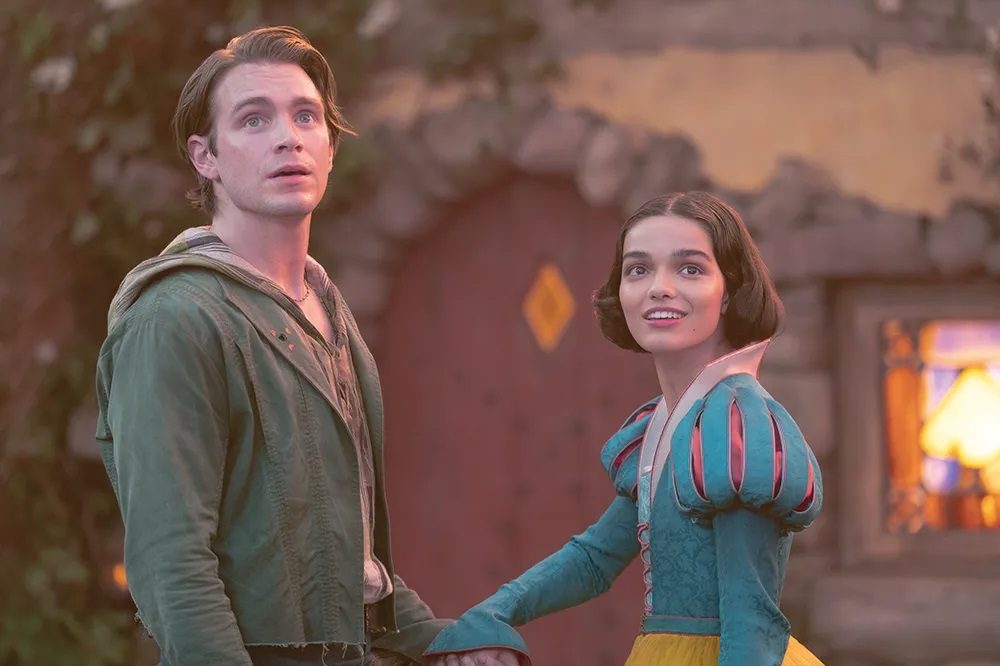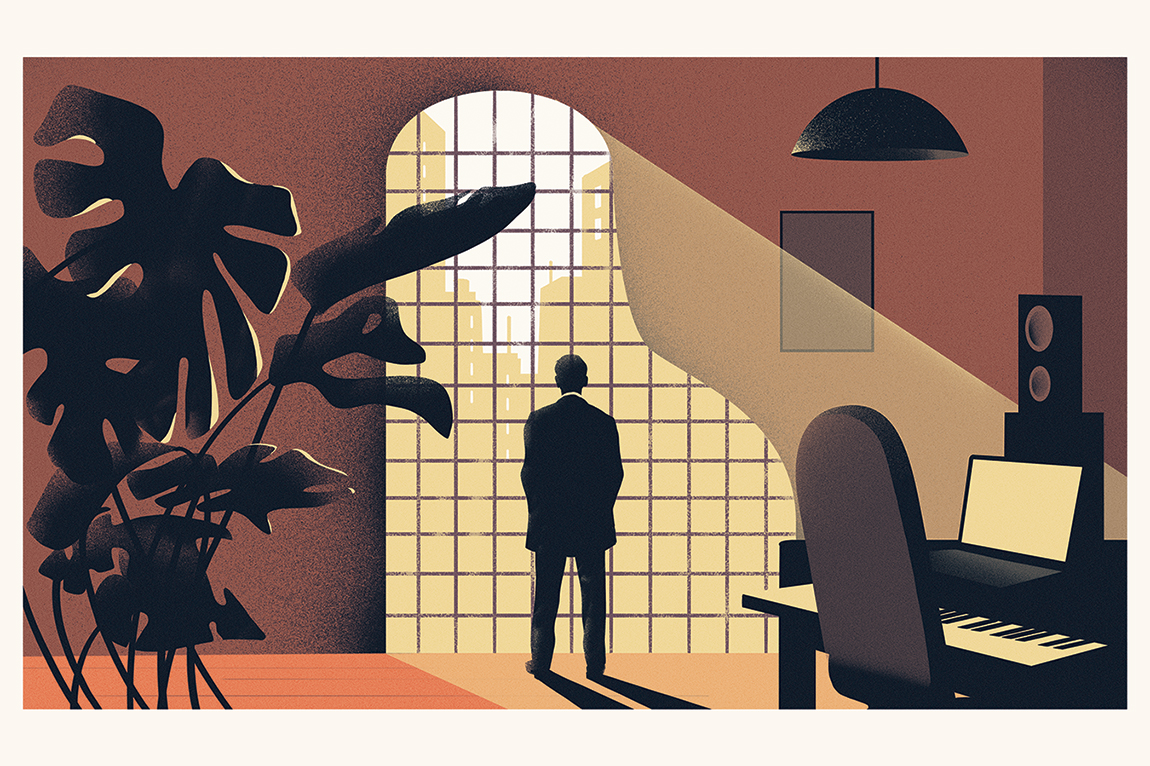If you have visited a cinema in the past two decades, you will know the work of the film composer Hans Zimmer. Since he emerged in 1988 with his score for the Oscar-winning film Rain Man (he recently won his second with Dune, among twelve total nominations), Zimmer has created the music for more than a hundred films, television series and other multimedia projects. His eclecticism both startles and amuses. He is surely the only person alive to have collaborated with the reclusive director Terrence Malick (on The Thin Red Line) and to have composed music for a soccer-based video game, FIFA 19. He has scored romantic comedies, sweeping epics, cartoon animations and thrilling action films. And, in doing so, he has changed what contemporary audiences, and listeners, expect from film composition.
When Zimmer first began his career in the early Eighties, co-composing with the British musician Stanley Myers, there were many great film composers working in the industry whose careers had started decades before: Elmer Bernstein, Jerry Goldsmith, John Barry and Ennio Morricone, to name but four. (Women were conspicuous by their absence.) But the doyen of the industry was John Williams. His work with both George Lucas and Steven Spielberg had established him as the leading film composer of his day, and his lush, Romantic-influenced scores for Star Wars, Indiana Jones and Superman, among many others, saw him create a musical language that virtually every big-budget blockbuster aspired to.
If you couldn’t afford Williams, or if you wanted something slightly different in the same vernacular, you hired Goldsmith, or James Horner, or Michael Kamen, or other composers who were writing within a style that prized large-scale orchestral writing, heavy on soaring strings and heroic brass. Their scores would be expensive, both in the composers’ fees and in the composition of the orchestras that would perform their music, but producers and directors believed them to be worth the money. And then Zimmer’s score to Rain Man, performed inexpensively on synthesizers and steel drums, made the industry realize that it was possible to move away from an established style of composition that had lasted almost since sound had been matched with pictures, and to embrace something different instead.
For my money, it is Crimson Tide, Tony Scott’s 1995 submarine-based thriller, that was Zimmer’s truly influential soundtrack. By then, he had won an Oscar for his score to The Lion King in 1994 and was regularly working on major films for directors such as the Scott brothers — most memorably for Ridley’s Thelma and Louise — and Peter Weir. But despite his obvious talents, Zimmer was not yet in the A-list stratosphere with Williams, Horner and Goldsmith; he was still scoring his fair share of unmemorable B-movies. But in Crimson Tide, he used a combination of synthesizers, male voice choir and conventional orchestra to stirring and powerful effect, brilliantly accentuating the drama and tension of its premise. The central theme won Zimmer a Grammy award. It has a fair claim to be as seminal for the next, twenty-first-century, generation of film scoring as Max Steiner’s symphonic scores were to the first half of the twentieth century, and as Williams’s Star Wars music was to its second half.
Within a matter of a few years, Zimmer became the most sought-after composer in Hollywood, as his heroic, uplifting scores became popular with both A-list directors and the general public. Films such as Gladiator, The Thin Red Line and The Last Samurai demonstrated his ability to compose rousing compositions that suited the spectacular epics that they accompanied, just as his quieter scores for pictures like As Good As It Gets and Something’s Gotta Give demonstrated that his abilities to score films in a lighter vein remained undiminished. When he began to collaborate with Christopher Nolan with 2005’s Batman Begins, matters changed once again.
It is a shame that, at the time of writing, the Nolan-Zimmer collaboration appears becalmed. The impact that Zimmer’s music made on Nolan’s chilly, cerebral epics, on the six films on which the two worked, cannot be overstated. Whether it is the urgently insistent ticking-clock motif for his score to Dunkirk, the Vaughan Williams-esque desolation that conveys the vastness of space in Interstellar or, most famously, the Piaf-inspired sonic booms of Inception, Zimmer gleefully created an entirely new musical language for every film, deservedly earning Oscar nominations for all of the above. His work with Nolan also introduced him to another audience altogether, who opened up a lucrative avenue for him and his work: live performance.
I saw Zimmer’s first live show in 2014 in London; it was clearly intended as an experiment to see whether large audiences would come to performances of his music that would, inevitably, be expensive to stage. The personnel included a large band, an orchestra, a choir and the Smiths guitarist Johnny Marr. Yet it worked superbly, and the audience loved it. Performances worldwide, including at the 2017 Coachella Festival, swiftly followed. And Zimmer is currently on yet another European tour, with a setlist that includes scores from his remarkably eclectic, and lucrative, career. No other composer can claim to have composed for Batman, James Bond, Sherlock Holmes, Spider-Man and Wonder Woman; no other composer is selling out 10,000-seat venues from Dublin to Prague. The United States will inevitably follow soon.
Yet Zimmer has faced criticism, too. A lengthy Vanity Fair feature from February 2022 accused him of relying heavily on “ghost composers” who do much of the actual work, allowing the big-name musician to claim both the prestigious solo credit and, crucially, the lucrative performance royalties, which can come to hundreds of thousands of dollars on major projects. Zimmer operates a studio, Remote Control Productions, which employs nearly 300 composers to various levels of seniority. Some of these, such as Lorne Balfe and the brothers Harry and Rupert Gregson-Williams, have become leading film composers themselves, albeit writing in a style that owes much to their mentor. The cynic might suggest that cash-strapped studios are happy to pay one of his disciples a fraction of Zimmer’s fee and get much the same result.
Unlike Williams, who is still composing at ninety and is respected in the industry for writing every score by himself, Zimmer’s use of a collaborative team of composers and producers might make him more prolific, but it also makes one wonder where the line is drawn between a score “composed by Hans Zimmer” and one “designed by Hans Zimmer, with added notes.” His defenders make comparisons with “executive chefs” and the high-fashion designer who doesn’t personally tailor every suit that appears under his name, but this is nonsense. A closer comparison is with pop stars whose music is written by a successful team of songwriters, but whose charisma and performing ability earn them both the big fees and, often, a co-writing credit. And, of course, their face and name on the albums.
Either way, a Zimmer score — whatever the man’s input, liminal or otherwise — is seldom less than a pleasure to listen to, as has been the case for decades. He and his cohort have revolutionized this kind of composition, and it has now become the shorthand for contemporary film scoring. Whether one welcomes its advent or mourns the gradual eclipse of the Williams grand orchestral style, this is now Hans Zimmer’s world. Other film composers just live in it.
This article was originally published in The Spectator’s June 2022 World edition.

























